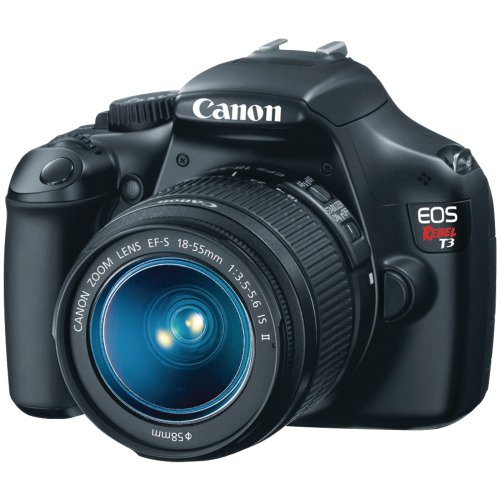There is, however, a kind of progression in the Rebel numbers. The first Canon Rebel was the 300D, then came the 350D, 400D, 450D, 1000D, and finally the 500D. No clue how a camera with the number 1000D got in there. It has not been hugely popular, so maybe the inconsistent number has something to do with that. The most popular of the Canon Rebels are the XSi and the T1i. And both are awesome pieces of photographic equipment.
The Rebel series has historically been popular among two groups of people.
Group 1 - new DSLR buyers. That is, those folks who are moving from a point and shoot camera to their very first DSLR camera.
Group 2 - current Rebel owners. It is amazing to see how many Rebel owners buy the newest Canon Rebel Release. Sometimes they will skip one, but there is a group of folks who are loyal to the Rebel line.
And for good reason. The Canon Rebel has been excellent at every release. Canon has consistently raised their technology standards with each new camera, and buyers have been extremely happy with their purchases. That goes a long way toward getting Canon the reputation that sells cameras and makes them one of the two top DSLR manufacturers, the other being Nikon.
OK, so what about the Canon Rebel XSi vs the Canon Rebel T1i? As already mentioned, both are great cameras that are well liked by those who have purchased them. In a comparison of image quality, it would be difficult for the average person to see any differences in the prints from the two cameras side by side. You may even need some coaching to find any at all. Thus, both are capable of almost identical image quality. The Canon T1i will produce a slightly larger image because it has almost 3 megapixels more capacity than the XSi, but at the 12-15 megapixel size, this becomes a non-issue (unless you are a megapixel prude).
Some other improvements on the Canon Rebel T1i include:
Extended ISO range up to ISO 12800 HD video capability New 3.0 inch 920K pixels screen Creative Auto Face Detection in Live View Larger buffer in continuous shooting Digic 4 style menu design Of those differences, the ones that might be of most note to a first time DSLR buyer are:
HD video capability - if you are moving up from a compact digital camera, you will be used to having video capability. But be aware that this camera is not a camcorder. While it has excellent video recording, there are two things that you need to know. First, there is no stereo sound or mic input. Second, the length of recording is quite a bit shorter than a dedicated camcorder. 3" LCD with 920K pixel resolution. This is quite a big improvement in the ability to see the screen in bright light. The XSi output is only 230K pixels. Creative Auto - this set of features lets the photographer tell the camera what conditions he is shooting in and what he wants the output to be. Basically, Canon says that Creative Auto will allow you to learn DSLR photography while still getting excellent photos during the learning process. Face Detection in Live View - this is a new feature to many DSLRs which is quite common in point and shoot cameras. It can be an added bonus if you are used to having it.I think that both cameras would be a fantastic fit for anyone except the extreme amateur or the professional photographer. Every camera in the Digital Rebel series has given its owners fantastic images. Mine certainly did. And these two cameras are no different. Both are HIGHLY RECOMMENDED.
Given the above information, why wouldn't you just go get a Canon Rebel T1i? The answer is COST. The Rebel XSi is about 0 less than its younger sibling. So if you think the improvements are enough for you to shell out another 0, then the Canon Rebel T1i is the right choice. If those features are not as important to you as the ability to take great still photos and change lenses when you want to change output, then the Canon Rebel XSi is the right choice.











